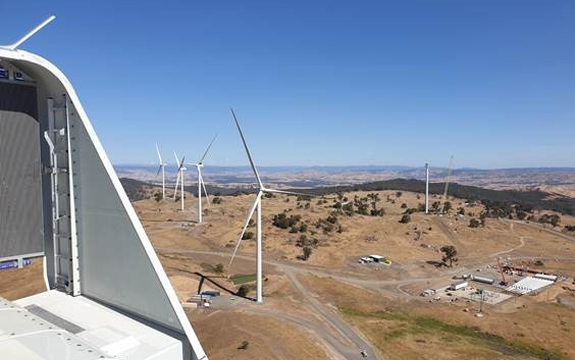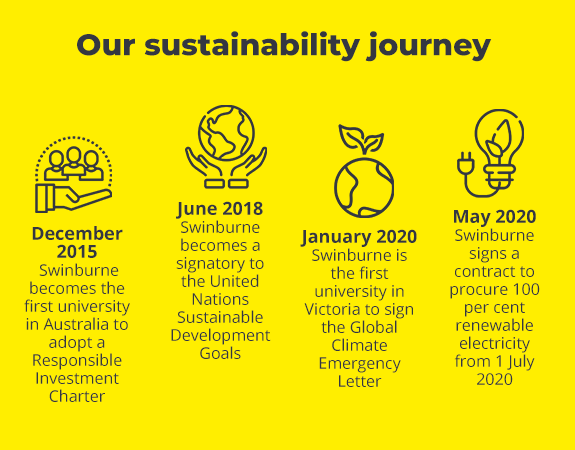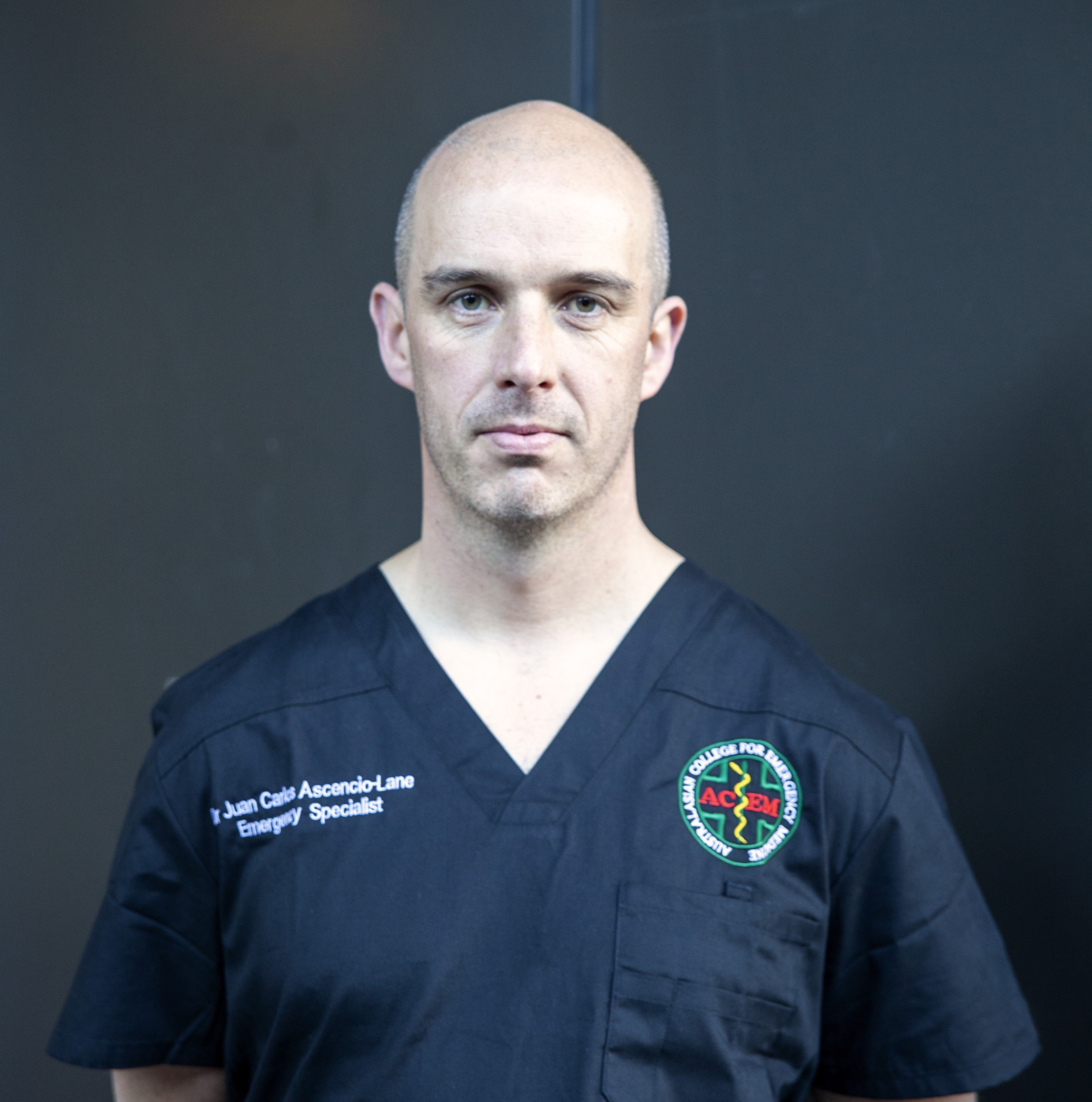
Swinburne will procure the equivalent of 100 per cent of our electricity load from the Cherry Tree Wind Farm, located near the town of Seymour in Victoria’s Goulburn Valley
Swinburne has signed a contract with Infigen Energy to procure 100 per cent renewable electricity from 1 July 2020. This will drastically reduce Swinburne’s carbon emissions footprint as emissions from our electricity represents over 70 per cent of our total emissions (approximately 30,000 tonnes CO2e/year).
Through this arrangement, we will be procuring the equivalent of 100 per cent of our electricity load from the Cherry Tree Wind Farm, which is located near the town of Seymour in Victoria’s Goulburn Valley. This latest development underpins Swinburne’s long-standing commitment to sustainability, as well as supporting a Victorian project and employment in the region.
“This agreement is a significant milestone for us as we continue to demonstrate our resolve to ensure a sustainable future by significantly reducing our carbon footprint. This also brings us a step closer to our goal of being carbon neutral by 2025,” says Vice-Chancellor and President, Professor Linda Kristjanson AO.
Professor Kristjanson adds: “I look forward to collaborating with like-minded organisations, such as Infigen Energy, as we continue to focus on embedding sustainability across Swinburne and our daily operations”.
“Swinburne is leading by example, proving that a clean and environmentally sustainable future is possible for Australia. Swinburne joins a growing list of Australian businesses who are proactively decarbonising their operations for the long-term benefit of their stakeholders. We are delighted to be partnering with Swinburne and we look forward to working closely together over the coming years,” says Infigen’s Managing Director and Chief Executive Officer, Ross Rolfe AO.
Securing a sustainable future
Swinburne’s commitment to sustainability is one of our core values – it is embedded across everything we do.
“We ensure sustainability is incorporated into our strategic planning and are constantly seeking
new ways to reduce our impact on the environment,” Professor Kristjanson explains.
In June 2018, Swinburne became a signatory to the United Nations Sustainable Development Goals. Since then, the university has announced it would enhance its existing sustainability initiatives by:
- committing to 100 per cent renewable electricity procurement by 31 July 2020 and to be carbon neutral by 2025;
- investing in relevant research and engagement focused on sustainability; and
- providing courses relevant to the environment and sustainability across the curricula, campus and community programs.
Earlier this year, we became the first university in Victoria to sign the Global Climate Emergency Letter and the first universities in Australia to implement a Responsible Investment Charter, which ensures environmental and social impacts are taken into account in the our investment choices.

A clean energy giant
Infigen Energy is one of Australia’s largest listed owners of wind power generators, with owned and contracted assets in Victoria and other states. Infigen supplies clean energy from a combination of renewable energy generation and firming solutions available from the broader energy market to Australian businesses.
The Cherry Tree Wind Farm comprises 16 wind turbines and has an installed capacity of 57.6MW, which can generate enough electricity to supply up to 37,000 Victorian homes a year. Infigen Energy has a long-term offtake agreement in relation to 100 per cent of the electricity and large-scale generation certificates produced by the wind farm.






